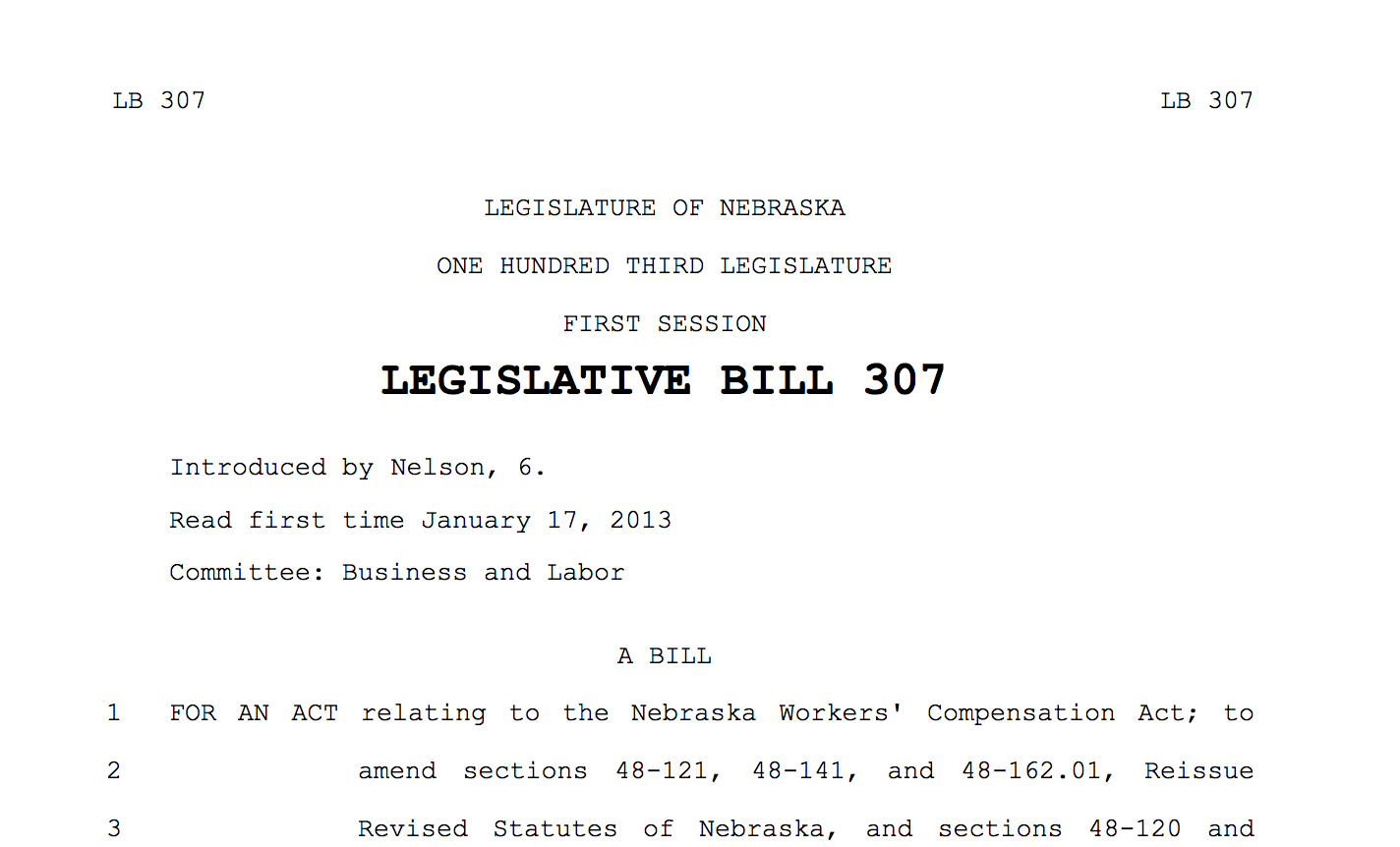Workers’ compensation law is one of the oldest and most basic protections working middle-class families are given by law. A current article by a pair of Washington state representatives points out this obvious but frequently overlooked truth.
Reps. Bob Hasegawa and Mike Sells point out: “Unless you’re self-employed, you’re probably covered by our state’s workers’ compensation program. It affects pretty much anyone who brings home a paycheck.”
They remind us that all jobs are covered and necessarily so because injury and disease comes about from virtually all kinds of employment: “the ranks of injured employees include everyday office employees: the guy whose back goes out after lifting too many boxes of copy paper; the secretary who can no longer click a computer mouse because of a repetitive-stress injury; or the delivery guy who shatters a hip slipping on a patch of ice. We’re talking about software designers, pizza twirlers, supermarket cashiers.”
Nebraska and Iowa, where our firm practices have solid well established laws (for more than a century) that protect the middle-class workers and their families. The Washington state representatives describe their situation this way: “Our proven, century-old workers’ comp system protects all of these employees and their families from economic ruin in the event of a severe or long-term injury. That’s the good news.”
The never-ending bad news is that this fundamental middle-class protection is under constant assault in all 50 states and the District of Columbia. Each year various business and insurance interests present bills to state legislatures asking to limit benefits, gain more control over healthcare for the injured, limit healthcare for the injured, and generally weaken protections for middle-class workers and their families.
In Nebraska, I am working with the Nebraska Association of Trial Attorneys (NATA) and other pro-consumer groups to resist the latest round of attacks on the middle class. One of the bills, LB 307, is supported by a deceptively named organization, Nebraskans for Workers’ Compensation Equity and Fairness. This bill would take away the most basic foundation of workers’ compensation laws, the requirement that these laws be interpreted liberally to protect our middle-class workers. The bill also strips workers of physician choice and allows insurance/employers to terminate benefits if you don’t go to company doctors.
Another bill, LB584, provides for treatment guidelines established by a private company in California and enforced by utilization reviews by other private businesses, including consulting doctors from all over the United States and perhaps the world. Having Nebraska physicians second-guessed by someone from another state or country seems far from fair and hardly protective of physicians or workers’ rights.


